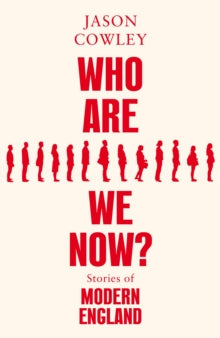
Who Are We Now? By Jason Cowley
In this compelling and essential book, Jason Cowley, editor-in-chief of the New Statesman, examines contemporary England through a handful of the key news stories from recent times to reveal what they tell us about the state of the nation and to answer the question Who Are We Now?Spanning the years since the election of Tony Blair's New Labour government to the aftermath of the Covid pandemic, the book investigates how England has changed and how those changes have affected us.
Cowley weaves together the seemingly disparate stories of the Chinese cockle-pickers who drowned in Morecambe Bay, the East End Imam who was tested during a summer of terror, the pensioner who campaigned against the closure of her GP's surgery and Gareth Southgate's transformation of English football culture. And in doing so, Cowley shows the common threads that unite them, whether it is attitudes to class, nation, identity, belonging, immigration, or religion. He also examines the so-called Brexit murder in Harlow, the haunting repatriation of the fallen in the Iraq and Afghan wars through Wootton Bassett, the Lancashire woman who took on Gordon Brown, and the flight of the Bethnal Green girls to Islamic State, fleshing out the headlines with the very human stories behind them.
Through these vivid and often moving stories, Cowley offers a clear and compassionate analysis of how and why England became so divided and the United Kingdom so fragmented, and how we got to this cultural and political crossroads. Most importantly, he also shows us the many ways in which there is genuine hope for the future.
Cowley weaves together the seemingly disparate stories of the Chinese cockle-pickers who drowned in Morecambe Bay, the East End Imam who was tested during a summer of terror, the pensioner who campaigned against the closure of her GP's surgery and Gareth Southgate's transformation of English football culture. And in doing so, Cowley shows the common threads that unite them, whether it is attitudes to class, nation, identity, belonging, immigration, or religion. He also examines the so-called Brexit murder in Harlow, the haunting repatriation of the fallen in the Iraq and Afghan wars through Wootton Bassett, the Lancashire woman who took on Gordon Brown, and the flight of the Bethnal Green girls to Islamic State, fleshing out the headlines with the very human stories behind them.
Through these vivid and often moving stories, Cowley offers a clear and compassionate analysis of how and why England became so divided and the United Kingdom so fragmented, and how we got to this cultural and political crossroads. Most importantly, he also shows us the many ways in which there is genuine hope for the future.
